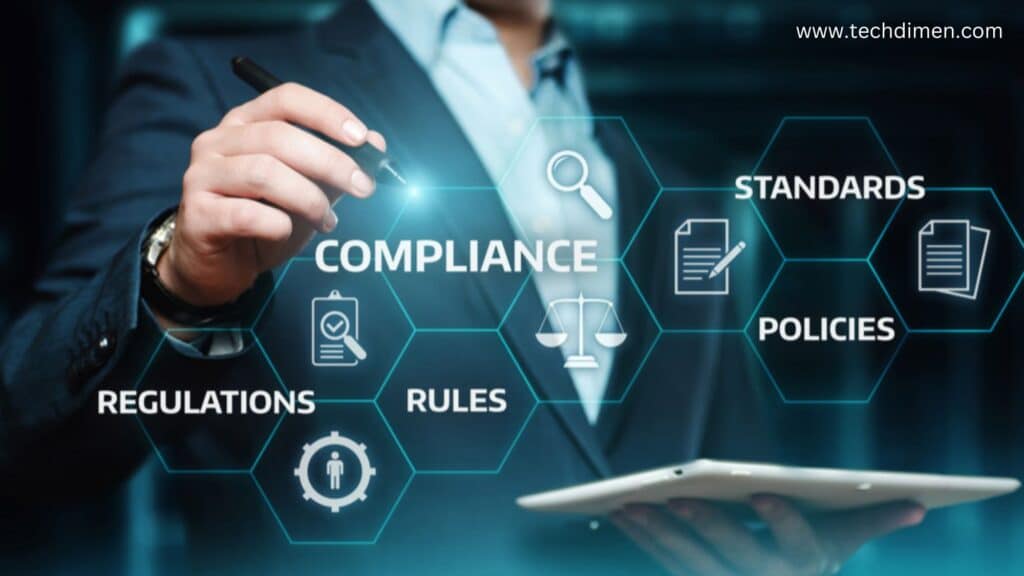Accounting for technology companies goes beyond traditional number crunching. It involves navigating complex financial standards, managing unique revenue streams, and adapting to fast paced growth cycles. Whether you run a SaaS startup or a mature software firm, mastering tech company accounting is crucial for solid financial health and regulatory compliance.
Distinctive Features of Accounting in the Technology Sector

Tech firms differ significantly from conventional businesses when it comes to Accounting for Technology Companies. Intangible assets like software, intellectual property, and patents dominate their balance sheets. Unlike physical goods sellers, these companies often rely on subscription or recurring billing models. These nuances require specialized accounting methods that reflect the nature of their operations and revenue flow.
In addition, rapid expansion typical of tech startups demands flexible accounting systems capable of scaling efficiently. Add to that the challenge of multi-jurisdictional tax rules, and it’s clear that accounting for tech companies requires expertise tailored to this dynamic industry.
Mastering Revenue Recognition Key Principles Under ASC 606 for Tech Firms
One of the most critical accounting hurdles in technology is revenue recognition. The ASC 606 standard, widely adopted by tech companies, introduced a systematic approach to record income as performance obligations to customers are met.
The five step framework begins by identifying contracts with clients, detailing the promised services or products, calculating the transaction price, allocating that price across the deliverables, and finally, recognizing revenue as each obligation is fulfilled. For instance, a SaaS company offering software licenses along with customer support must spread revenue recognition appropriately over time rather than recognizing it all upfront.
This approach promotes transparency and aligns reported revenue with actual service delivery, enhancing investor confidence.
Research & Development Accounting When to Expense and When to Capitalize

Research and development are the lifeblood of innovation in tech. Yet, accounting for these costs isn’t straightforward. Generally, R&D expenses are written off immediately, reflecting the uncertainty inherent in early research stages. However, once a product passes the technological feasibility milestone, certain development costs can be capitalized and amortized over its useful life.
Under IFRS, this capitalization is somewhat broader but still requires careful judgment. For example, a company developing a new cloud platform might expense initial feasibility studies but capitalize software coding and testing costs once the project meets specific criteria.
This distinction impacts reported earnings and tax liabilities, so getting it right is essential for accurate financial reporting.
Cloud Based Revenue Models SaaS, PaaS, and IaaS Accounting Nuances
Cloud computing services introduce their own complexities in financial recording. SaaS providers typically recognize revenue on a straight-line basis over contract terms, reflecting continuous service access. PaaS offerings might involve consumption-based pricing, requiring dynamic revenue tracking tied to usage metrics. IaaS companies face fluctuating demand patterns that complicate revenue allocation.
An integrated billing and accounting system becomes vital to ensure revenue recognition accurately reflects customer usage and contract specifics, especially for multi element agreements bundled into single contracts.
Equity Compensation Accounting for Stock Options and Awards
Equity-based incentives are fundamental in attracting talent within technology firms. Valuing and expensing stock options demand a solid grasp of fair value estimation, often using models like Black Scholes.
The resulting compensation expense is recognized over the vesting period, ensuring expenses match employee services rendered. Missteps in this area can distort profitability and cause regulatory scrutiny, so maintaining meticulous records and working closely with auditors is key.
Navigating Tax Issues Specific to Technology Companies

Taxation for tech companies is multifaceted. Governments often incentivize innovation via R&D tax credits, reducing the effective tax burden. However, global operations bring transfer pricing considerations, requiring careful documentation to comply with international tax frameworks.
Digital sales taxes, which vary widely by jurisdiction, present compliance challenges. Failure to properly account for sales and use taxes on software subscriptions or cloud services can lead to costly penalties. Partnering with tax specialists who understand the tech landscape is essential to optimize tax positions and avoid surprises.
Critical Financial Indicators for Technology CFOs
Effective financial leadership depends on tracking the right key performance indicators. Metrics like Annual Recurring Revenue (ARR) and Monthly Recurring Revenue (MRR) provide insight into predictable income streams. Monitoring churn rates reveals customer retention health, while Customer Acquisition Cost (CAC) and Customer Lifetime Value (CLTV) gauge the efficiency and profitability of sales and marketing efforts.
These indicators equip CFOs to steer their companies toward sustainable growth and satisfy investor expectations.
| Financial Metric | Description |
|---|---|
| Annual Recurring Revenue (ARR) | Subscription revenue projected over a year |
| Monthly Recurring Revenue (MRR) | Recurring revenue earned monthly |
| Churn Rate | Rate at which customers discontinue service |
| Customer Acquisition Cost (CAC) | Average expense to gain a new customer |
| Customer Lifetime Value (CLTV) | Total revenue expected from a single customer over time |
Regulatory Reporting and Compliance Challenges in Tech Accounting
Technology companies grapple with stringent reporting requirements. Managing deferred revenue payments received but not yet earne requires precision to meet ASC 606 standards. Multi element contracts demand detailed revenue splits.
Regulations like Sarbanes-Oxley and GDPR add layers of complexity, enforcing strict internal controls and data protection obligations. Leveraging automated accounting platforms with comprehensive audit trails enhances accuracy and compliance, reassuring stakeholders.
Outsourcing vs In House Accounting Choosing the Right Path for Tech Firms
Tech companies face a strategic decision on whether to outsource financial functions or maintain an internal accounting team. Startups often benefit from outsourced expertise to manage bookkeeping and reporting affordably. However, larger or more complex organizations typically require in-house teams for closer control and quicker financial insights.
The decision hinges on company size, transaction complexity, growth trajectory, and budget constraints.
Technology Driven Solutions Leveraging Accounting Software and Automation
Modern technology firms often rely on specialized software like QuickBooks, NetSuite, and Xero tailored for the tech sector. Subscription billing platforms such as Chargebee and Stripe integrate revenue recognition with invoicing, reducing manual errors.
Expense management tools like Ramp, combined with payroll systems such as Gusto, help streamline finance operations. The key is seamless integration among platforms to avoid data fragmentation and ensure consistent, real-time financial reporting.
Financial Forecasting and Cash Flow Management in Fast-Growing Tech Startups
Startups in technology experience volatile growth phases demanding dynamic financial planning. Managing cash flow carefully prevents operational interruptions. Accurate forecasting helps allocate capital for recruitment, marketing, and product development. Scenario analysis prepares companies to adapt to shifting market conditions or funding rounds.
Regularly revisiting and revising financial plans fosters agility and builds investor confidence.
Global Compliance Managing International Regulatory Risks
Operating internationally exposes tech companies to varied compliance obligations. Privacy laws like GDPR require rigorous data governance. Currency fluctuations can affect profitability, while cross-border taxation and transfer pricing rules add complexity.
Engaging regional experts and deploying compliance software tools mitigate risks, ensuring adherence to evolving global standards.
Innovations Shaping the Future of Accounting in Technology
Artificial intelligence and automation are revolutionizing accounting by minimizing repetitive tasks and accelerating financial close cycles. Real-time analytics offer up to date financial insights, enabling faster decision-making.
Blockchain technology promises enhanced security and transparency, helping verify transactions and reducing fraud risk. Tech companies adopting these innovations will gain significant competitive advantages through improved accuracy and operational efficiency.
Why Specialized Accounting Matters in Tech
Accounting for technology companies demands tailored approaches that reflect unique revenue models, intense R&D activity, complex taxation, and rapid scaling. By mastering relevant standards, utilizing modern tools, and tracking key financial indicators, tech firms can maintain robust financial health and comply with regulatory demands.
Staying ahead of accounting innovations and regulatory changes is essential for long-term success in this dynamic sector.
Frequently Asked Questions About Accounting for Technology Companies
What makes accounting for technology companies different from other industries?
Technology companies often deal with intangible assets like software and intellectual property, rely heavily on subscription-based revenue models, and invest significantly in research and development. These factors require specialized accounting practices that differ from traditional industries, especially around revenue recognition and expense capitalization.
How do tech companies recognize revenue under ASC 606?
Under ASC 606, tech companies must identify contracts with customers, separate performance obligations, determine transaction prices, allocate prices to obligations, and recognize revenue as those obligations are fulfilled. This is particularly important for SaaS and subscription services, where revenue is often recognized over the contract term rather than upfront.
Should R&D costs be expensed or capitalized in tech companies?
Generally, R&D costs are expensed immediately during the research phase. However, once a project reaches technological feasibility, development costs can be capitalized and amortized over the product’s useful life. This approach aligns expenses with the revenue generated by the product.
What are the key financial metrics for tech company accounting?
Important metrics include Annual Recurring Revenue (ARR), Monthly Recurring Revenue (MRR), churn rate, Customer Acquisition Cost (CAC), and Customer Lifetime Value (CLTV). These indicators help gauge business performance, customer retention, and growth potential.
How do technology companies handle equity compensation accounting?
Stock options and awards are valued using models like Black-Scholes and expensed over the vesting period. Proper accounting ensures expenses reflect employee services and complies with regulatory requirements.
What tax considerations are unique to tech companies?
Tech firms often qualify for R&D tax credits, but they also face complex international tax rules, including transfer pricing and digital sales taxes. Proper tax planning and compliance are critical to avoid penalties and optimize tax benefits.
When should a tech company outsource its accounting versus keeping it in house?
Startups with limited budgets often outsource to gain expertise affordably. Larger or fast-growing firms typically benefit from in-house accounting teams for better control and quicker access to financial data. The choice depends on company size, complexity, and growth stage.
How do SaaS companies account for subscription revenue?
SaaS companies usually recognize subscription revenue on a straight-line basis over the contract period, reflecting continuous delivery of services. Billing and revenue recognition systems must align to accurately record this recurring revenue.
What role does automation play in tech company accounting?
Automation streamlines bookkeeping, invoicing, expense tracking, and financial reporting, reducing errors and accelerating close cycles. Integrating accounting software with billing and payroll platforms enhances accuracy and operational efficiency.
How do tech companies prepare for financial audits and compliance?
Maintaining clear records, adhering to revenue recognition standards like ASC 606, and implementing strong internal controls are key. Using audit-ready accounting software and working closely with auditors ensures smooth compliance with regulatory requirements.
Final Thought:Accounting for technology companies
Accounting for technology companies isn’t just about keeping the books balanced It’s about capturing the unique financial story of innovation, rapid growth, and evolving business models. From mastering complex revenue recognition rules like ASC 606 to navigating the fine line between expensing and capitalizing R&D costs, tech accounting demands precision and adaptability. The fast-paced nature of the industry requires financial leaders to track meaningful metrics, leverage cutting edge automation tools, and stay ahead of regulatory changes. When done right, specialized accounting becomes a powerful tool, enabling technology companies to build investor trust, optimize tax positions, and fuel sustainable growth. Ultimately, embracing these accounting complexities positions tech firms not only to survive but to thrive in an ever-changing landscape.

Jhon AJS is a tech enthusiast and author at Tech Dimen, where he explores the latest trends in technology and TV dimensions. With a passion for simplifying complex topics, Jhon aims to make tech accessible and engaging for readers of all levels.







